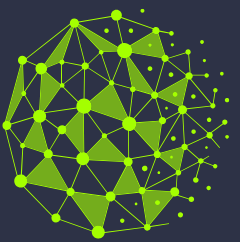Redefining Academic Integrity in the AI Era
The continuous Hingham High School AI lawsuit, which centers on the disciplinary action taken against a student for using AI. To complete a history assignment, has highlighted how artificial intelligence is changing education. Creating opportunities for personalized learning, efficient grading systems, and enhanced student experiences, yet it also presents challenges.
This blog offers a deep exploration of the case, its ethical and legal aspects, and its wider consequences. For the educational system as it navigates the complexity of AI integration.
What is the Hingham Hingham School AI Lawsuit About?
The world took notice when Hingham High School reprimanded a student. For allegedly using artificial intelligence technologies on a history assignment. The parents of the student filed legal actions, arguing that the school’s regulations lacked clarity about artificial intelligence use. Which infringed their son’s rights.
This case centers on a growing issue for teachers worldwide. How can we subtly incorporate artificial intelligence into learning while maintaining academic integrity, fairness, and openness?
The Legal and Ethical Dimensions of the Hingham School AI Lawsuit
The lawsuit has spurred debates on moral and legal issues related to artificial intelligence’s application in education. Fundamentally, the issue draws attention to a grey area where present laws do not specifically specify. How artificial intelligence is to be applied in academic tasks. Such events may become more frequent as artificial intelligence develops. Which emphasizes even more the importance of well-defined policies on ethical AI applications in educational environments.
Legally, this case raises questions about student rights and whether schools have the authority to regulate . Their use of technology beyond their premises. Since AI systems may gather and utilize personal data from pupils. It also draws attention to privacy and data protection concerns.
On the other hand, the application of artificial intelligence in academic tasks poses. Ethical concerns due to the potential blurring of distinctions between automated assistance and original work. This could therefore compromise students’. Development of critical thinking abilities and result in a lack of responsibility and fairness in grading.
The Broader Implications for Education Systems(Hingham School AI Lawsuit)
The Hingham High School AI lawsuit reminds educational systems all around to closely. Review their rules and procedures on artificial intelligence integration. As more institutions embrace artificial intelligence technologies. They desperately need to establish explicit rules that guarantee academic integrity while supporting responsible and ethical use of technology.
Background and Context about Hingham School AI Lawsuit
Before this episode, Massachusetts-based Hingham High School had not developed any particular AI rules. The government imposed disciplinary measures on the student, including a lesser mark. Removal from the National Honour Society, after discovering her use of artificial intelligence.
The parents sued the institution to contest its punitive policies, as they claimed. That the usage of artificial intelligence does not always translate into cheating. This sparked more general discussions about the lack of clear policies regarding the use of artificial intelligence in educational institutions.
The Need for Clear Policies on AI Use in Hingham School AI Lawsuit
The Hingham High School AI case highlights how urgently educational systems must create thorough. unambiguous policy regarding artificial intelligence incorporation. These rules should handle things like academic integrity, data privacy, and student rights. They should also give teachers direction on how to include artificial intelligence in a way that advances. Equitable learning environments and critical thinking ability.
Furthermore, we must regularly review and modify these rules to adapt to the constantly evolving landscape of artificial intelligence technology. This calls for cooperation among academics in the field of artificial intelligence ethics, legislators, and teachers.
Key Issues in the Hingham School AI Lawsuit
The complaint presents several ethical and legal questions reflecting more general difficulties in artificial intelligence incorporation in educational institutions.
Legal Claims
- The parents contend that the school neglected to offer clear guidelines on artificial intelligence. Therefore depriving kids of knowledge of its inappropriate usage.
- Unfair Grading Practices: They assert their child was punished unfairly by the school without sufficient proof AI was used improperly.
- Academic Rights: The complaint questions the dearth of information on the function of artificial intelligence in keeping with academic standards.
Ethical Concerns
- Bias in AI Systems: Did the application of AI technologies ensure the accuracy of AI-generated work? Often, biased algorithms can misclassify data.
- Transparency: If we use AI technologies to identify the hack, would parents and children fully understand how they work?
- AI systems gather and examine enormous volumes of data. Were the students’ rights to privacy sufficiently safeguarded?
Impact on the Student in Hingham School AI Lawsuit
The chastised student dealt not just with academic sanctions but also with reputational consequences. That would influence prospects going forward, including college admissions. School regulations lacking clarity caused great stress for the student and their family. Which raised issues around how to best reconcile discipline with creativity.
The Broader Implications for Schools
This case pertains to the future of artificial intelligence in education and the responsibilities of educators. Legislators, and engineers to ensure the ethical application of this technology, encompassing not just one child or one institution.
For Schools
- Schools have to draft precise, unambiguous rules on the use of artificial intelligence to prevent related litigation and uncertainty. Already, the Hingham School Committee has changed its academic integrity rules to specifically handle artificial intelligence.
- Teachers and administrators should get instruction on identifying appropriate and inappropriate. AI use, as well as how to include AI ethically in their courses.
For Students
- Equity in Learning: Does artificial intelligence worsen inequality or offer a more fair playing field for students of many aptitudes? The complaint highlights concerns about unclear policies that could potentially discourage students from exploring innovative learning approaches.
- Not only should we teach students how to use artificial intelligence, but also about its ethical implications and potential limitations.
Policy
- Stronger Policies: The case emphasises the necessity of national rules controlling the integration of artificial intelligence. In educational environments, thereby safeguarding student rights and promoting creativity.
- Precedent Setting: A court ruling in this case may affect how universities all throughout the United States. Implement artificial intelligence programs in the next years.
Conclusion
The Hingham High School AI lawsuit is a sobering reminder for educational institutions. To carefully and sensibly include artificial intelligence in their operations. The case underscores the crucial need for constant communication and cooperation. Among all stakeholders to ensure the fair and ethical application of artificial intelligence in classrooms. Schools may open the path for a day when artificial intelligence improves rather than undercuts student progress. By tackling the main concerns brought up in this case.
In conclusion, we should handle the integration of artificial intelligence into education carefully. Considering its potential effects on academic integrity, justice, and student growth, even though it offers advantages.
Public and Expert Reactions
Expert Opinions about Hingham School AI Lawsuit
- Teachers stress the need for well-defined artificial intelligence use guidelines. “This case emphasises the critical need of openness and policies as artificial intelligence. Expands in classrooms,” says education consultant Dr. Emily Clarke.
- Schools have to employ artificial intelligence systems carefully, according to AI ethicalists, to prevent prejudice and misuse. “Before using artificial intelligence in classrooms, a strong ethical framework is absolutely essential,” says AI ethics expert James Carter.
- Lawyers bring forth this case as a possible turning point. Attorney Mark Sullivan says, “This lawsuit could set legal and policy precedents in AI and education.”
Public Reactions
The public’s perspective on the case has been divided. Some parents and students support the family by advocating for comprehensive regulations and protection from punitive measures. That could restrict educational inquiry. Others support the school’s measures as required to maintain academic integrity at a time when technology is developing quickly.
Updates on the Lawsuit
The lawsuit has brought significant developments:
- Judge Paul G. Levenson turned down parents’ pleas to have the fines reversed. Therefore allowing the school’s actions to remain while the lawsuit moves forward.
- Hingham High School modified its academic integrity policy to explicitly incorporate acceptable. AI usage, thereby resolving the gaps that emerged throughout the case.
- Legal proceedings are currently underway, with both sides preparing to present their claims through further arguments.
Potential Resolutions and Recommendations
From this lawsuit emerges an opportunity to address gaps in how AI is used in schools.
Recommendations for Hingham School AI Lawsuit
- Provide AI-specific policies that precisely list approved and undesirable uses for AI technologies.
- Educating parents and kids on how AI technologies operate and their role in tests will help guarantee openness.
- Teach professors how to include artificial intelligence professionally and ethically in their courses.
Recommendations for Policymakers
- Draft national or statewide rules controlling artificial intelligence applications in educational environments.
- Guaranteeing algorithmic responsibility will help AI systems to be free from prejudice or abuse.
- Create guidelines for data privacy to guard student records using artificial intelligence techniques.
Closing Thoughts about Hingham School AI Lawsuit
The Hingham High School AI case addresses far more than one student or institution. The outcome is likely to shape the acceptance, management, and perception of artificial intelligence in classrooms across the nation.
Finding the ideal balance between ethical duty and technical advancement is crucial. And this instance reminds us strongly of the difficulties still to come. Schools, teachers, and legislators must collaborate to apply artificial intelligence. As a tool for development, not as a source of conflict.
If we want to future-proof education in the AI era. Learning from events like these will help us create policies supporting justice, openness, and creativity.
How do you view artificial intelligence’s application in educational settings? Comment below with your ideas!




